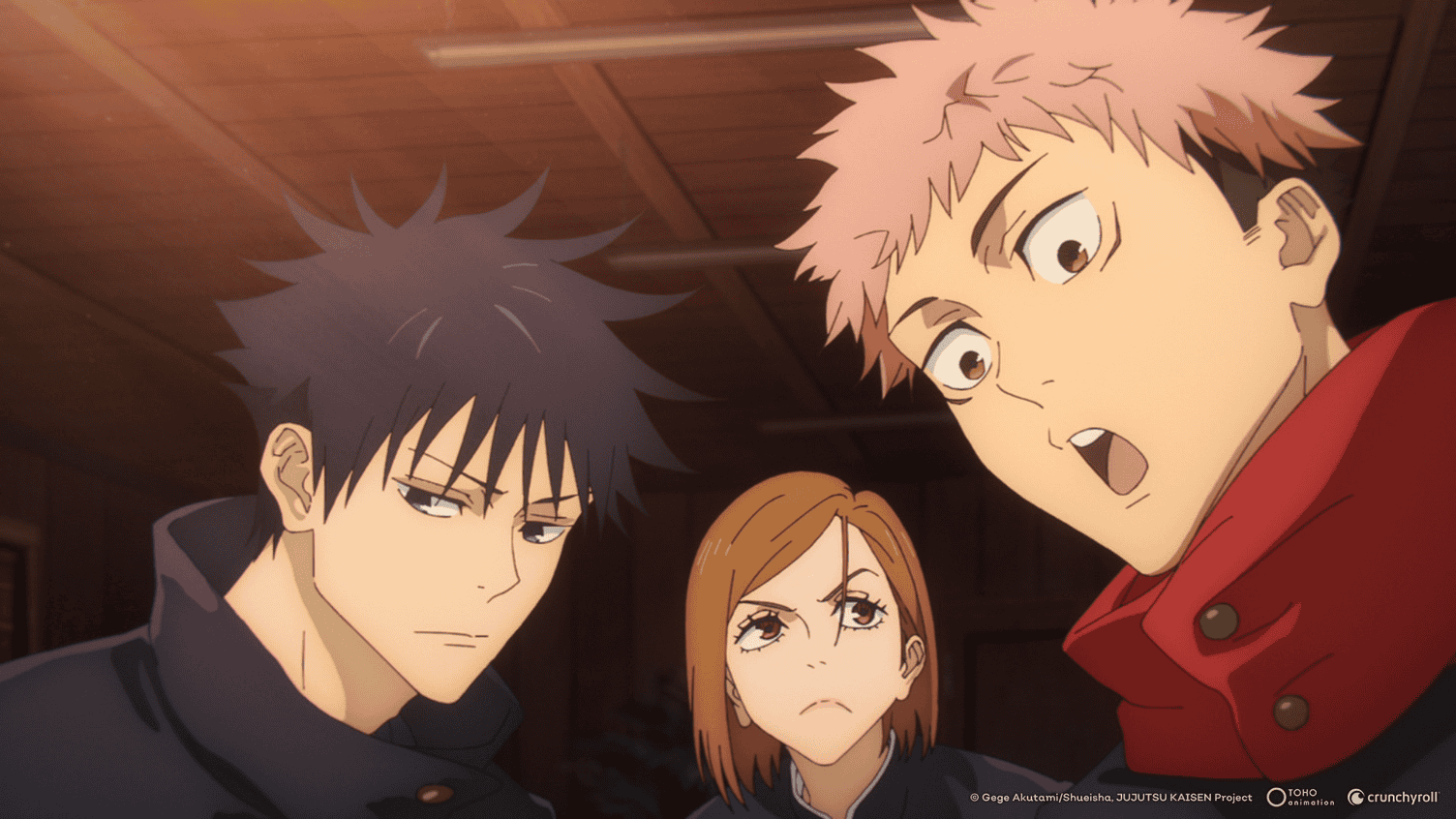After six years of intense battles, heartbreaking losses, and unforgettable arcs, *Jujutsu Kaisen* officially wrapped up its manga run on September 30, 2024, with Chapter 271. Gege Akutami’s supernatural epic, which began serialization in *Weekly Shonen Jump* back in 2018, concluded in a whirlwind of closure, controversy, and quiet reflection.
The final volume—Volume 30—was released in December 2024, and it included a 16-page bonus epilogue that provided long-awaited updates on key characters left in the wake of the climactic Shinjuku Showdown arc.
Manga Epilogue Highlights: The Future Beyond the Fight
The bonus content, much like the series itself, is bittersweet. Here’s what we learn about some of the fan-favorite characters:
- Panda survives into the year 2080, though no longer fully functional. He’s kept under the care of the Gojo Clan—a quiet nod to legacy preservation after the death of Satoru Gojo.
- Yuta Okkotsu is implied to have married Maki Zenin, with both taking on leadership roles in the wake of the old regime. Yuta’s arc closes on a note of responsibility and continuity, showing his evolution from a traumatized teenager to a mature jujutsu sorcerer.
- Yuko Ozawa returns to her hometown and crosses paths with Yuji Itadori, giving fans a subtle moment of emotional reconnection and suggesting Yuji finds some measure of peace.
- Nobara Kugisaki, whose fate had remained ambiguous for many chapters, is revealed to have survived, now dealing with the emotional fallout of the war—and a cold reunion with her mother.
- Uraume‘s epilogue explores their deeply rooted loyalty to Sukuna, offering insight into their stoicism and pain, and how that blind devotion shaped their path through the final chapters.
Though some fans found the epilogue too subdued for such a grand finale, others appreciated the quiet realism and emotional ambiguity. There’s no grand victory—only the aftermath of a world reshaped by loss and duty.
Anime: Major Announcements & What’s Coming
The anime adaptation of *Jujutsu Kaisen* is far from over. Studio MAPPA continues its visually stunning, emotionally devastating journey through Gege Akutami’s world. As of June 2025, fans can look forward to several key developments:
- Anime Expo 2025 will host a special *Jujutsu Kaisen* event on July 6, featuring a panel with Junya Enoki (voice of Yuji Itadori) and Megumi Ogata (voice of Yuta Okkotsu). Expect exclusive reveals, behind-the-scenes stories, and maybe even a Season 3 teaser.
- Compilation Film Release: *Jujutsu Kaisen: Hidden Inventory / Premature Death*—a condensed retelling of Season 2’s Gojo backstory arc—is hitting North American theaters on July 16, 2025. With remastered visuals and new voiceovers, it’s designed as both a recap and a fresh theatrical experience.
- Season 3 is in production and will adapt the explosive “Culling Game” arc. While there’s no official release date yet, speculation points to a late 2025 or early 2026 premiere. This arc is known for its chaotic structure, high stakes, and massive character roster, so fans are expecting one of MAPPA’s most ambitious seasons yet.
Gaming News: *Jujutsu Kaisen: Cursed Clash*
In February 2024, *Jujutsu Kaisen: Cursed Clash* launched across PlayStation, Xbox, PC, and Nintendo Switch. This arena-based 2v2 fighter includes 16 playable characters from the anime, including Gojo, Megumi, Toge, and Mahito. The game was praised for its faithful character animations but criticized for a shallow campaign and lack of content depth. While it’s not a competitive esports hit, it remains a fun treat for fans looking to relive iconic moments through gameplay.
Ryomen Sukuna: The Villain With a Wound That Never Healed
The final arc shed more light on Ryomen Sukuna, not just as the King of Curses, but as a broken soul. In a quiet but haunting scene, Sukuna calls himself an “unwanted child”—a rare moment of vulnerability that frames his ruthless nature as a defense mechanism. The insight doesn’t excuse his actions but paints a fuller picture of a villain born from neglect and fear, a theme that mirrors several other characters in the story, including Megumi and Yuji.
In the end, *Jujutsu Kaisen* isn’t just a series about curses—it’s about how people are shaped by what they carry inside. Whether through rage, love, or grief, every character faces the weight of their own soul—and fights to be more than what the world expected them to become.
JJK Girls
Jujutsu Kaisen’s female characters continue to gain popularity as we move through 2025. Fans are eagerly anticipating new developments for characters like Maki, Mei Mei, and Yuki Tsukumo. Recent buzz suggests a major announcement is coming in Weekly Shonen Jump Issue #44, where creator Gege Akutami may reveal new storylines focusing on the series’ powerful women.
The anime side brings exciting news as well. The director of Jujutsu Kaisen Season 1, Park Sunhoo, is working on a new anime set to release on Disney+ later this year. While not directly JJK-related, fans of his work on characters like Nobara will likely follow this new project with interest.
Among the most discussed female characters recently are Yuki Tsukumo, Rika Orimoto, and Takako Uro, who consistently rank at the top of character popularity polls. Maki remains the most prominent female character in terms of story relevance, standing alongside male protagonists Yuji, Megumi, and Yuta.
Key Takeaways
- A major announcement about Jujutsu Kaisen is expected soon in Weekly Shonen Jump Issue #44, potentially featuring female characters.
- Former JJK director Park Sunhoo is launching a new anime on Disney+ in 2025, exciting fans of his character work.
- Yuki Tsukumo, Rika Orimoto, and Maki continue to be the most prominent and popular female characters in the series.
Overview of Jujutsu Kaisen
Jujutsu Kaisen has emerged as one of the most popular anime and manga series in recent years, known for its dark fantasy elements and compelling characters. Since its manga debut in 2018, the series has gained worldwide recognition for its unique approach to supernatural storytelling and character development.
Concept and Popularity
Jujutsu Kaisen, created by Gege Akutami, revolves around a world where negative emotions manifest as “Curses.” These dangerous entities require specialized sorcerers to exorcise them. The story follows Yuji Itadori, a high school student who becomes the host of a powerful curse named Sukuna after consuming a cursed object.
The series quickly gained popularity after its anime adaptation premiered in 2020. Its blend of action, horror, and complex character relationships appealed to a wide audience. The manga continues to be published in Weekly Shonen Jump, maintaining strong sales and a dedicated fanbase.
What sets Jujutsu Kaisen apart is its intricate power system and well-choreographed battles. The concept of “cursed energy” provides a foundation for diverse fighting styles and techniques that keep the storyline fresh and engaging.
Influence of JJK on Female Empowerment
Jujutsu Kaisen has received attention for its portrayal of female characters, offering a different approach compared to traditional shonen series. The women in JJK are defined by their abilities and contributions to the storyline rather than by romantic interests or physical appearances.
Characters like Nobara Kugisaki stand out for their combat prowess and independent personalities. Unlike many female characters in similar series, Nobara fights alongside male counterparts as equals, demonstrating comparable strength and determination.
The series avoids common tropes where female characters exist primarily to support male protagonists. Instead, women in Jujutsu Kaisen have their own motivations, strengths, and character arcs. This representation has resonated with fans seeking more balanced gender portrayals in anime.
However, critics note that the series still has room for improvement regarding the quantity and prominence of female characters in its overall narrative. Despite this, JJK has set a positive example for female representation in mainstream shonen manga and anime.
JJK Girls’ Achievements
The female characters in Jujutsu Kaisen have gained significant recognition both within the anime community and through prestigious awards. Their impact extends from competitive achievements to broader cultural influence.
Sporting Accomplishments
Nobara Kugisaki stands out among JJK female characters, winning the coveted “Best Girl” award at the 2022 Crunchyroll Awards. This recognition highlights her popularity and the strong connection fans feel with her character.
The 2024 Anime Awards also featured Jujutsu Kaisen prominently, with several female characters receiving nominations. These achievements demonstrate how the series’ female characters have become role models for many viewers.
Characters like Maki Zenin showcase exceptional physical abilities and combat skills that rival male counterparts. Her discipline and determination make her one of the most formidable fighters in the series.
Mei Mei and Yuki Tsukumo are frequently ranked among the strongest female sorcerers, displaying tremendous power that has earned them respect in the JJK universe.
Impact Beyond Sports
JJK’s female characters have made a significant cultural impact, helping redefine how women are portrayed in shonen anime. They demonstrate confidence, intelligence, and agency rather than serving as mere supporting characters.
The JJK center frequently highlights how characters like Nobara challenge traditional gender norms. She refuses to compromise her femininity while being exceptionally powerful, creating a new template for female characters.
Maki’s legacy extends beyond her fighting prowess, as her story addresses themes of discrimination and perseverance. Many female athletes and fans cite her journey as inspirational.
Characters like Yuki Tsukumo and Mei Mei show professional excellence and leadership, serving as role models for viewers seeking strong female representation in media.
Profiles of Noteworthy JJK Athletes
Jujutsu Kaisen has introduced many remarkable characters who showcase extraordinary athletic abilities alongside their jujutsu techniques. These individuals demonstrate exceptional physical prowess that complements their supernatural skills.
Trailblazers in the Sport
Nobara Kugisaki stands out as one of the most physically capable female characters in the series. Her background in rural Japan required her to develop strength and endurance from a young age. She combines her athletic abilities with precise hammer and nail techniques.
Maki Zenin deserves special recognition for her extraordinary physical capabilities. Despite having no cursed energy, she compensates with superhuman strength and agility that surpasses many sorcerers. Her mastery of various weapons demonstrates exceptional coordination and body control.
Mai Zenin, though often overshadowed by her twin sister Maki, displays remarkable precision in her movements. Her background in the prestigious Zenin family instilled disciplined training regimens from childhood.
Rising Stars
Kasumi Miwa shows tremendous potential with her simple but effective New Shadow Style swordsmanship. Her quick reflexes and footwork make her movements difficult to predict in combat situations. Though still developing, her dedication to physical training is evident.
Utahime Iori demonstrates graceful yet powerful movements that complement her singing-based techniques. As an instructor at Kyoto Jujutsu High, she models disciplined physical conditioning for her students.
Mei Mei utilizes her athletic abilities with calculating precision. Her combat style requires exceptional timing and spatial awareness to coordinate attacks with her crow familiar. Her physical capabilities continue to evolve alongside her tactical skills.
Challenges Faced by Female Athletes
Female athletes face unique obstacles in their sports careers. They must navigate both personal challenges and broader systemic issues while striving for success.
Dealing with Adversity
Jackie Joyner-Kersee, named the greatest female athlete of the 20th century by Sports Illustrated, often speaks about the importance of sportsmanship when facing challenges. During a recent event at the JJK Center in East St. Louis, she emphasized how adversity builds character.
Female athletes frequently confront criticism that goes beyond their athletic performance. This was highlighted in a viral ad titled “Real Girls Rock” that showed women training while critics labeled them with negative terms.
Learning to handle defeat gracefully is essential. Joyner-Kersee, who won six Olympic medals, teaches young athletes that losing provides valuable lessons about resilience and determination.
Making smart decisions during high-pressure situations is another skill top athletes develop through facing and overcoming adversity.
The Fight for Equality in Sports
Recent controversies have emerged regarding competition categories in women’s sports. A UN report revealed female athletes have lost medals to transgender competitors, raising questions about competitive fairness.
Policy changes are happening at various levels. In early 2025, new executive orders were signed addressing biological men participating in women’s sports, which supporters claim protects competitive opportunities for female athletes.
Advocacy has become important for many competitors. Athletes like Riley Gaines have become vocal about their concerns while facing both support and criticism for their stances.
The debate extends beyond trophies to questions about funding, media coverage, and sponsorship opportunities. Despite progress, female athletes continue working toward equal recognition and compensation compared to their male counterparts.
Role of the Support Team
In the world of JJK (Jujutsu Kaisen), support teams play a vital role in helping characters navigate challenges. This is reflected in real-world sports as well, where Olympic legend Joyner-Kersee emphasized the importance of her support network.
“I had a great support team around me that helped me to navigate and get through,” Joyner-Kersee shared with attendees at a recent Girls in Sports Day event in East St. Louis. Her words highlight how crucial support can be for success.
In JJK, characters like Shoko demonstrate the power of support roles. Fans often debate whether Shoko is “top tier” as a support character, showing the community’s interest in these vital background figures.
Key Elements of Effective Support Teams:
- Providing emotional stability during challenges
- Offering tactical assistance in critical moments
- Building confidence in main fighters/athletes
- Creating safety nets for recovery
Support characters in JJK, much like in sports, don’t always get the spotlight but are essential to the success of main characters. They provide healing, strategic advice, and emotional grounding.
The development of female support characters in JJK has been a topic of discussion among fans. While some argue the series treats women characters well as “actual characters,” others point to missed opportunities for deeper development.
Cultural Impact of JJK Girls
The female characters in Jujutsu Kaisen have created significant ripples beyond the anime itself. Their portrayal as powerful, complex individuals has challenged traditional shonen tropes and influenced both media representations and real-world conversations.
Influences in Media and Fashion
Jujutsu Kaisen’s female characters have helped reshape how women are portrayed in shonen anime. Unlike traditional depictions that often relied on over-sexualization and limited action scenes, JJK presents its female characters with substantial combat roles and meaningful storylines. This approach has influenced newer anime productions to follow suit.
Characters like Nobara Kugisaki have become fashion icons. Her confident style and distinctive hammer-and-nail combat technique have inspired cosplay trends worldwide. Maki Zenin’s glasses and serious demeanor have similarly gained popularity among fans.
The impact extends to music as well. Megan Thee Stallion’s album “MEGAN” includes direct references to Jujutsu Kaisen, demonstrating how these characters have permeated mainstream culture beyond anime circles.
Advocacy and Community Engagement
JJK’s female characters have sparked important discussions about representation in anime communities. Fan groups dedicated to analyzing and celebrating these characters have formed online, creating spaces for meaningful dialogue about gender roles in media.
The legacy of these characters extends to conventions and fan events, where panels specifically discussing the importance of JJK’s female representation have become common. These conversations often compare JJK’s approach to older series like Naruto, highlighting the evolution of female characters in the genre.
Community initiatives inspired by these characters have emerged. Some fans have created scholarship funds and mentorship programs encouraging young women to pursue careers in animation and storytelling.
JJK girls have become symbols for challenging outdated tropes, inspiring fan artists and writers to create their own stories with similarly well-developed female characters.
JJK Girls and Risk-Taking
The female characters in Jujutsu Kaisen stand out for their incredible courage and willingness to take risks. Unlike many anime series, JJK portrays its female characters as equal participants in dangerous battles and missions.
Characters like Nobara Kugisaki and Maki Zenin regularly put themselves in harm’s way, showing that risk-taking isn’t limited to male sorcerers. Their bold decisions in combat situations demonstrate their commitment to protecting others and fulfilling their duties as jujutsu sorcerers.
Risk-taking among JJK’s female characters extends beyond physical danger. Many face social rejection and institutional barriers within the jujutsu world, yet persist despite these challenges.
Maki particularly embodies this spirit, rejecting her clan’s limitations to forge her own path. Her determination to succeed without cursed energy represents one of the series’ most compelling examples of calculated risk-taking.
The search results suggest that fans appreciate seeing these characters “fight, take risks, learn, self-actualize, and overcome challenges.” This connects to why many consider JJK’s female characters among the strongest in modern anime.
The JJK Foundation’s “Winning in Life” concept mirrors what we see in the anime – learning to take healthy risks and applying this skill across different aspects of life. This approach helps create well-rounded characters who grow through their experiences.
Through these risk-taking female characters, JJK demonstrates that great human beings aren’t defined by gender but by their courage, determination, and willingness to face danger for what they believe in.
Frequently Asked Questions
Fans of Jujutsu Kaisen have many questions about the female characters in the series. These questions cover recent developments, character growth, new abilities, and popularity shifts among the JJK girls.
What is the latest development involving Momo Nishimiya in the JJK series?
Momo Nishimiya has received increased screen time in recent chapters. Her broom-flying technique has been expanded with new applications in combat situations.
She demonstrated strategic thinking during a recent mission that highlighted her growth as a sorcerer. Momo’s relationship with Nobara has also developed, showing a deeper friendship between the two characters.
How have the female characters evolved in the latest JJK manga chapters?
Female characters in JJK have shown significant development in recent chapters. Nobara Kugisaki has recovered from her injuries and returned with enhanced resonance techniques.
Mai Zenin’s sacrifice has continued to influence Maki’s character arc and fighting style. The female characters now play more pivotal roles in major battles rather than supporting positions.
Their backstories have been explored more deeply, giving readers better insight into their motivations and strengths.
Are there any new jutsu introduced by JJK girls in recent updates?
Yes, several new techniques have been showcased by female characters. Nobara has revealed an advanced version of her Resonance that allows for greater range and impact.
Maki has developed new cursed tool techniques that complement her enhanced physical abilities. Miwa has demonstrated a refined version of her Simple Domain that provides greater defensive capabilities.
These new abilities show the ongoing growth of female characters’ combat prowess in the series.
What are the recent discussions on Reddit about JJK female characters?
Reddit discussions have focused on the increased prominence of female characters in recent story arcs. Many fans are praising the author for giving more substantial roles to the women in the series.
There are ongoing theories about Nobara’s future role in the story. Fans are also discussing the potential for Maki to become one of the strongest characters in the series following recent power developments.
Character popularity polls shared on Reddit show rising appreciation for the series’ female characters.
Who are the new female characters introduced in JJK Season 2?
Season 2 introduced several important female characters. Riko Amanai played a crucial role in the Gojo’s Past Arc despite her limited screen time.
Utahime Iori received more development, showing her abilities as a Kyoto Jujutsu High teacher. Several female cursed spirits and sorcerers appeared in the Shibuya Incident Arc with unique abilities and motivations.
These additions brought more diversity to the female cast in the anime adaptation.
Which JJK girl has risen in popularity due to the latest story arcs?
Maki Zenin has experienced the most significant popularity surge following recent story developments. Her transformation after Mai’s death and subsequent power increase resonated strongly with fans.
Her revenge arc and determination to dismantle the Zenin clan showcased her resilience and strength. Nobara has also maintained high popularity due to fans’ anticipation of her return and future role in the story.
Character popularity polls show these two consistently ranking among the top ten most popular characters in the series.






